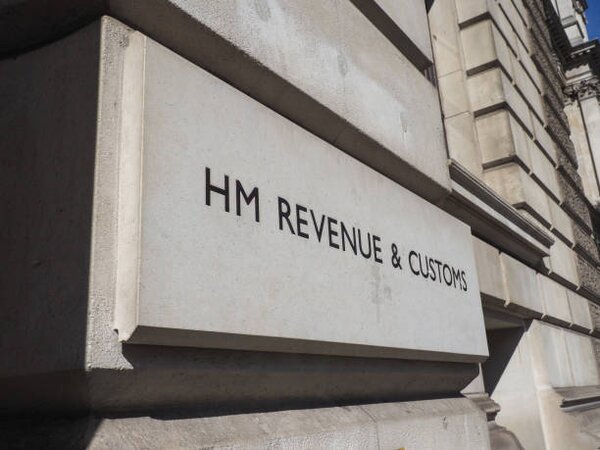Thousands of UK savers are now receiving tax letters from HM Revenue and Customs (HMRC), after interest on their savings exceeded long-standing tax-free limits.
Rising interest rates combined with frozen allowances mean that even moderate savings balances, particularly in fixed-term accounts, can now trigger a tax charge.
Many taxpayers are unaware that their savings could generate enough interest to push them above the Personal Savings Allowance (PSA), making them liable for income tax on the returns. While this is not a new tax, the current environment is catching people off guard. Here’s what’s going on, what thresholds apply, and how to avoid unnecessary surprises.
What Is the Personal Savings Allowance?
The Personal Savings Allowance (PSA) is the amount of savings interest you can earn each tax year without paying tax. Introduced in 2016, the PSA has not changed since its launch.
The allowance varies depending on your income bracket:
- Basic-rate taxpayers (up to £50,270): up to £1,000 in interest is tax-free
- Higher-rate taxpayers (£50,271–£125,140): only £500 is tax-free
- Additional-rate taxpayers (income over £125,140): no allowance
Any interest earned above these thresholds is taxed at your standard income tax rate: 20%, 40% or 45%, depending on your total taxable income.

Why Are Tax Letters Being Sent Now?
The UK has experienced a sustained period of higher interest rates, meaning savings accounts are finally earning meaningful returns again, in many cases around 5% per year. However, while returns have grown, the PSA has remained frozen. This combination is quietly pulling more savers into the tax net.
A significant number of taxpayers are unaware that interest from multiple savings accounts is combined and reported to HMRC. If the total interest exceeds the PSA, HMRC may send a letter advising that a tax payment is due, even if the balance was previously considered modest.
How Even Modest Balances Can Exceed the PSA
To illustrate the point, here are a few realistic examples of how savers may now cross the threshold:
- A £3,500 fixed-rate account earning 5% interest over three years pays £525 at the end. That full sum is taxed in the year it is paid, breaching the £500 PSA for higher-rate taxpayers.
- A saver with £11,000 in a standard account at 5% will earn £550 in one year, over the PSA for higher-rate earners.
- With £21,000 at 5%, you’d earn £1,050, which exceeds the £1,000 PSA for basic-rate taxpayers.
In all cases, if the PSA is breached, the interest above the threshold is taxable, and can prompt HMRC to issue a letter, even if the tax bill is relatively small.
How Interest Timing Affects Your Tax Liability
The timing of when interest is paid matters just as much as how much is earned. Some savings products, such as multi-year fixed-term bonds, only pay out interest at maturity. This means several years' worth of returns can be taxed in a single tax year, potentially pushing you above the PSA, even if your balance isn’t high.
For example, a 3-year bond paying £525 in interest will have that amount treated as income in the year it matures, not spread over the term. Conversely, accounts that pay monthly or quarterly interest may allow you to stay under the limit by distributing the income more evenly across tax years.
Self-Assessment Taxpayers May Qualify for a Higher Threshold
HMRC has introduced a higher tax-free threshold of £20,070, but only for certain self-assessment taxpayers who meet specific eligibility criteria.
Details are still emerging, and not all taxpayers will qualify. This increased threshold may provide relief for some individuals with multiple income sources, but it's important to check directly via your HMRC account or speak to a tax adviser to understand if it applies to your situation.
The Role of Frozen Tax Bands
One of the key reasons more people are being caught out is fiscal drag, a result of income tax thresholds being frozen until 2028. As wages and savings returns increase, people are pushed into higher tax brackets without any real increase in disposable income.
The PSA thresholds, tied to income bands, remain static. So even small pay rises or passive income gains could affect both your PSA limit and your tax bracket, leading to unexpected tax bills.

Conclusion
This trend isn’t the result of new legislation or punitive tax rules, it's the product of a mismatch between rising returns and frozen tax thresholds. With interest rates up and allowances unchanged, more people are finding themselves unexpectedly liable for tax on their savings.
If you have savings earning interest, it’s important to:
- Review the total interest earned across all accounts
- Understand your tax band and corresponding PSA
- Check how and when interest is paid
- Consider moving savings into tax-free ISAs if eligible
- Speak to a financial adviser if you’re unsure
HMRC’s letters are a timely reminder that even seemingly small financial decisions, like where to hold your savings, can have tax implications. Awareness and planning are the best tools to stay ahead.











